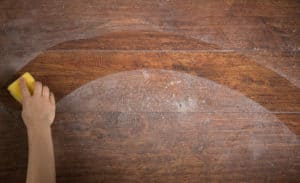How To Minimize Common Indoor Allergies
Many people associate allergies with pollen and the outdoors. However, there are many indoor allergens that you need to look out for, too. The interior of your home should be a respite from exterior stressors, so minimizing indoor allergens is well worth the effort.

Here, we’ll discuss the most common indoor allergy triggers and what you can do to minimize them.
The Most Common Indoor Allergens
The main indoor allergens that may be found in Florida homes include:
- Dust mites
- Pet dander
- Cockroach droppings
- Mold
These allergens can trigger different allergy symptoms depending on the person, with a runny nose, sneezing, nasal congestion, dry cough, sore throat, red, itchy, and watery eyes being the most common.
Minimizing Indoor Allergies
Change Your HVAC Filter Regularly.
Allergens that make their way into the air in your home may be caught in your HVAC system’s air filter. Once the filter becomes clogged with debris, however, the allergens will be sent back out into your home, diminishing its air quality. So by changing your HVAC filter every couple of months, you can maintain a good quality of air in your home and prevent indoor allergy symptoms.
Keep Your Home Clean.
To manage dust mites and other indoor allergens, it’s important to keep your home clean. Hardwood floors are ideal for allergy management, but if you have carpet, vacuum it once or twice per week and wash throw rugs weekly.
Consider using allergen-resistant covers for mattresses, box springs, and pillows to reduce your contact with dust mites. Additionally, wash bedding and throw blankets in hot water on a weekly basis to kill dust mites. These steps will also help keep pet dander to a minimum in your home.
Prevent Cockroaches.
You can reduce the risk of getting cockroaches inside your home by keeping it clean. Cockroaches are attracted to food, so clean your kitchen thoroughly and ensure that any food left out is covered. The garbage can in the kitchen should also be covered to avoid a roach infestation, which could cause allergy symptoms. If you do have cockroaches in your home, use traps, poison baits, and boric acid instead of chemicals, which can exacerbate asthma and cause respiratory irritation.
Avoid Excess Moisture.
Excess moisture and humidity in your home can lead to mold development, so promptly fix any leaks that occur in your home and keep an eye on the bathroom, which is often the most likely room to develop mold. Make sure to clean up any mold that you see immediately to prevent allergy symptoms.
For allergy testing and treatment, schedule an appointment with Kratz Allergy & Asthma today.

